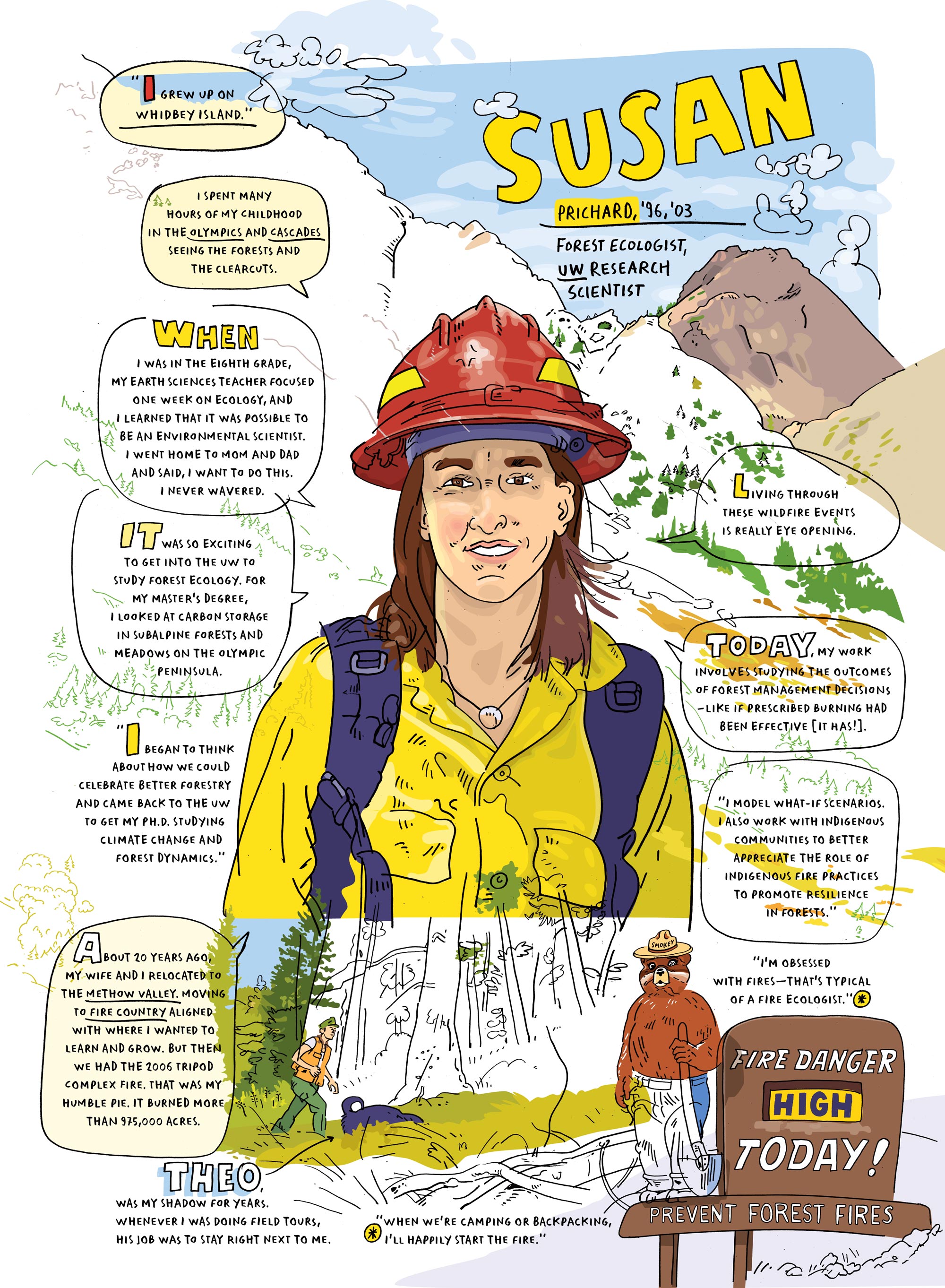

Dr. Susan J. Prichard specializes in a (literally) hot topic: wildfire ecology. She researches the effects of wildfires in Washington and works with other fire experts—like local indigenous communities—to mitigate them. Prichard lives in the Methow Valley near the wild western town of Winthrop. She tells UW Magazine her story.
I grew up on Whidbey Island.
I spent many hours of my childhood in the Olympics and Cascades seeing the forests and the clearcuts.
When I was in the eighth grade, my earth sciences teacher focused on week on ecology, and I learned that it was possible to become an environmental scientist. I went home to mom and dad and said, ‘I want to do this.’ I never wavered.
It was so exciting to get into the UW to study forest ecology. For my Master’s degree, I looked at carbon storage in sub-alpine forests and meadows on the Olympic Peninsula.
I began to think about how we could celebrate better forestry and came back to the UW to get my Ph.D. studying climate change and forest dynamics.
About 20 years ago, my wife and I relocated to the Methow Valley. Moving to fire country aligned with where I wanted to learn and grow. But then we had the 2006 Tripod Complex Fire. That was my humble pie. It burned more than 175,000 acres.
Living through these wildfire events is really eye opening.
Today, my work involves studying the outcomes of forest management decisions—like if prescribed burning has been effective (it has!).
Theo [Prichard’s dog] was my shadow for years. Whenever I was doing field tours, his job was to stay right next to me.
I model what-if scenarios. I also work with indigenous communities to better appreciate the role of indigenous fire practices to promote resilience in forests.
When we’re camping or backpacking, I’ll happily start the fire. I’m obsessed with fires—that’s typical of a fire ecologist.